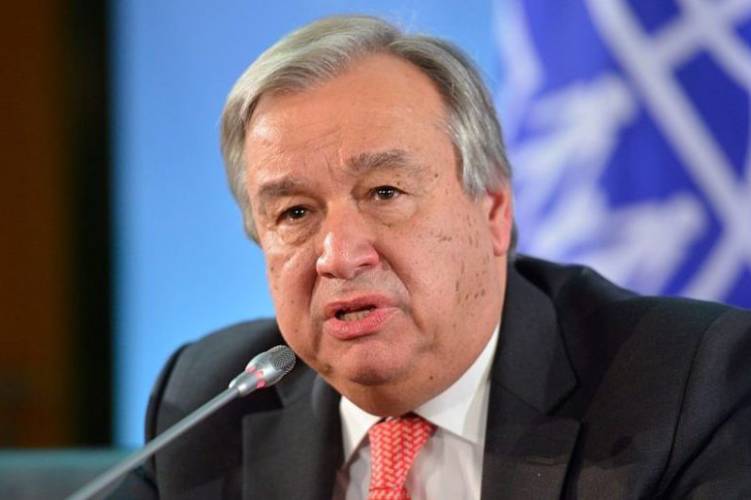UN Secretary General António Guterres has raised concerns over the harassment of activists in Sri Lanka.
In a new report of the UN Secretary-General presented today to the Human Rights Council in Geneva, Guterres notes that the Office of the High Commissioner for Human Rights (OHCHR) had reported harassment or surveillance of defenders and victims of violations continued, including questioning by authorities after trips to attend Human Rights Council sessions and intimidation.
Death threats during Council sessions and side events by different groups were also reported.
Guterres said that on 2 August 2018, special procedures mandate holders addressed allegations of harassment, including online attacks, against Sandya Ekneligoda in reprisal for her efforts to seek the truth about the fate and whereabouts of her husband (LKA 2/2018), disappeared journalist Mr. Prageeth Ekneligoda, whose case was registered by the Working Group on Enforced or Involuntary Disappearances in 2010.
Ms. Ekneligoda has been the target of threats, intimidation and online attacks by supporters of the Buddhist monk leader of the group Bodu Bala Sena (BBS), Galagodaatte Gnanasara Thera. He reportedly stormed the court room during a hearing on Ekneligoda’s disappearance and threatened and intimidated Ms. Eklenigoda. He was convicted for contempt of court in 2018 and granted Presidential pardon on 23 May 2019.
A February 2019 OHCHR report notes that harassment or surveillance of human rights defenders and of victims of human rights violations continue. In 2018, rights defenders reported being questioned by the authorities after travelling to attend sessions of the Human Rights Council.
Representatives of civil society have also reported being monitored, under surveillance, or intimidated, including receiving death threats, by different groups while participating in sessions of the Council.
A former NGO worker was visited by armed men who questioned him about his activities in support of visits by diplomats and United Nations officials, including the High Commissioner for Human Rights in 2013. The OHCHR report further notes that such cases suggest that informal and often extra-legal intelligence gathering activities have not ceased. (Colombo Gazette)

